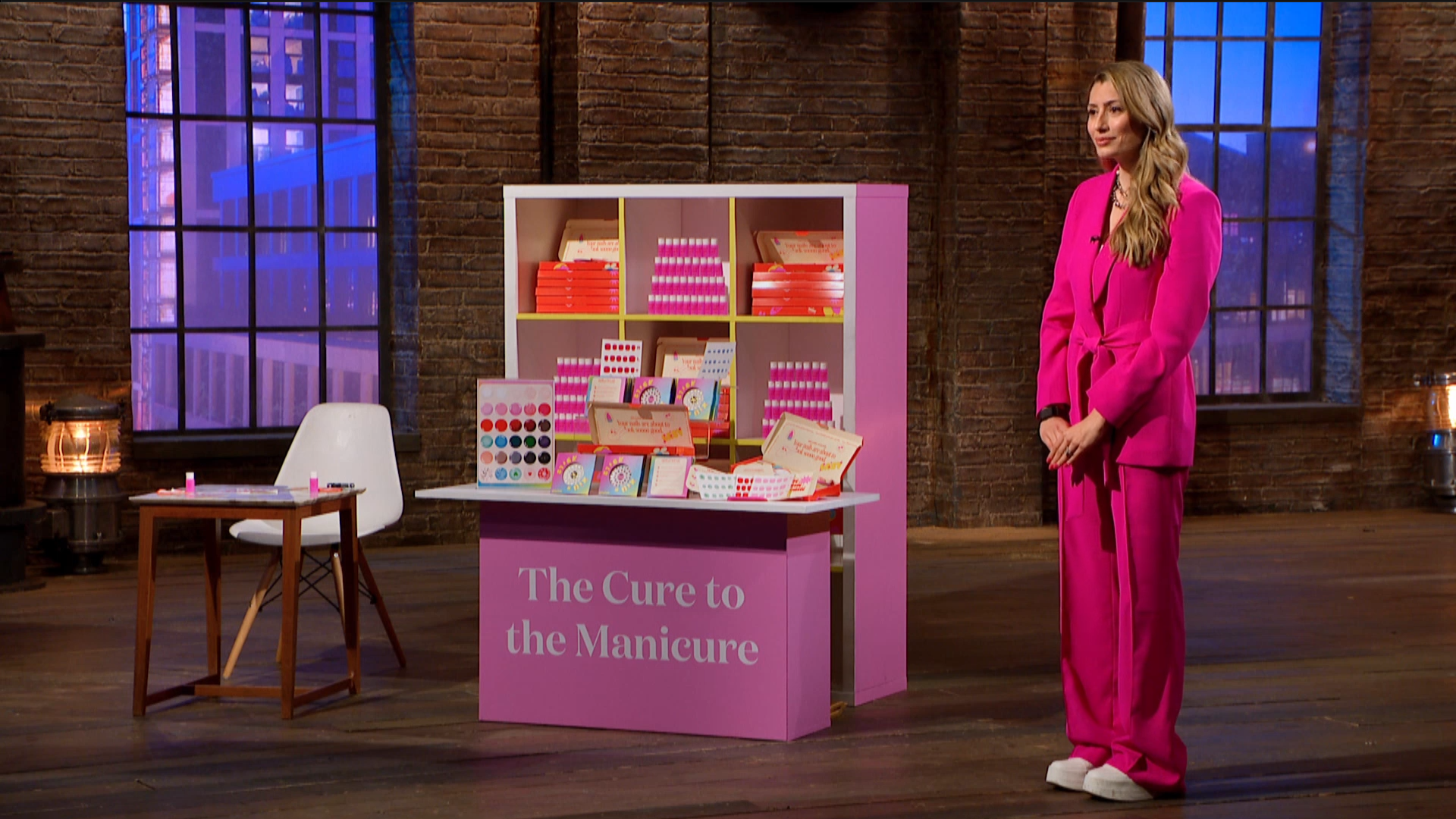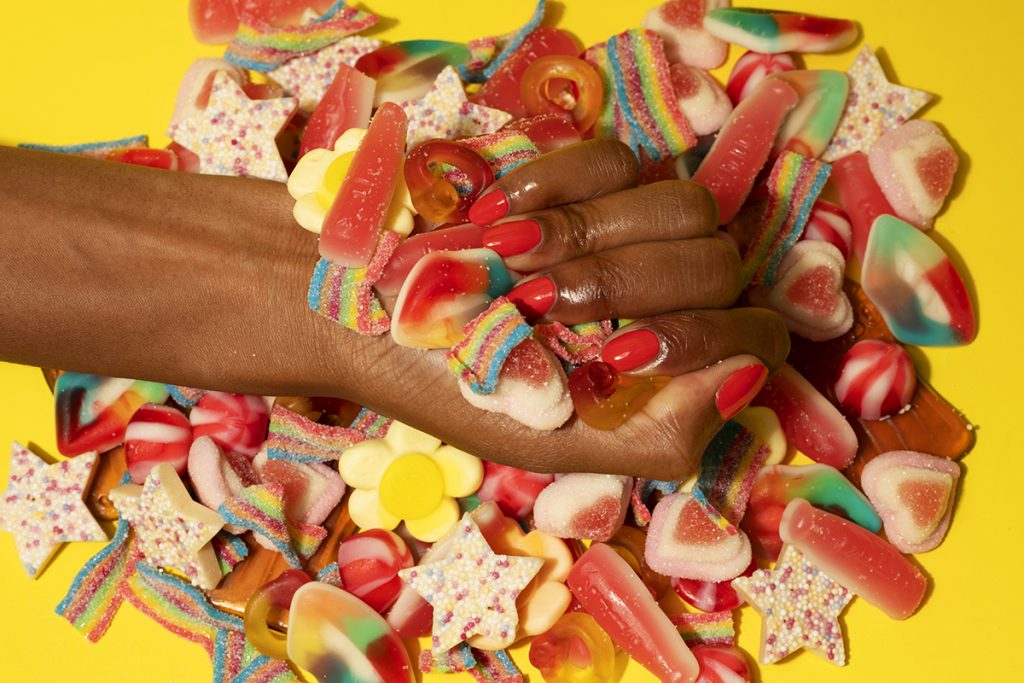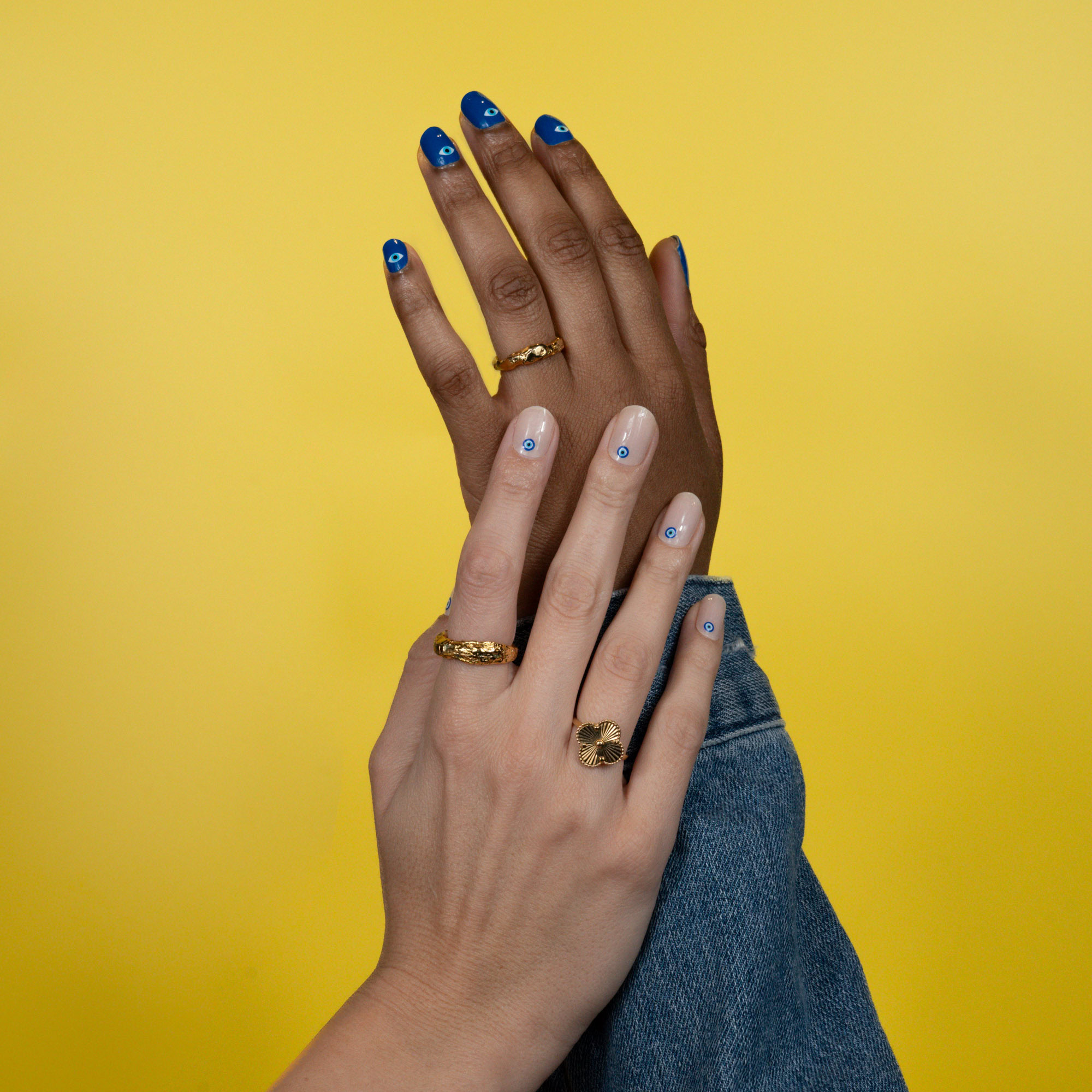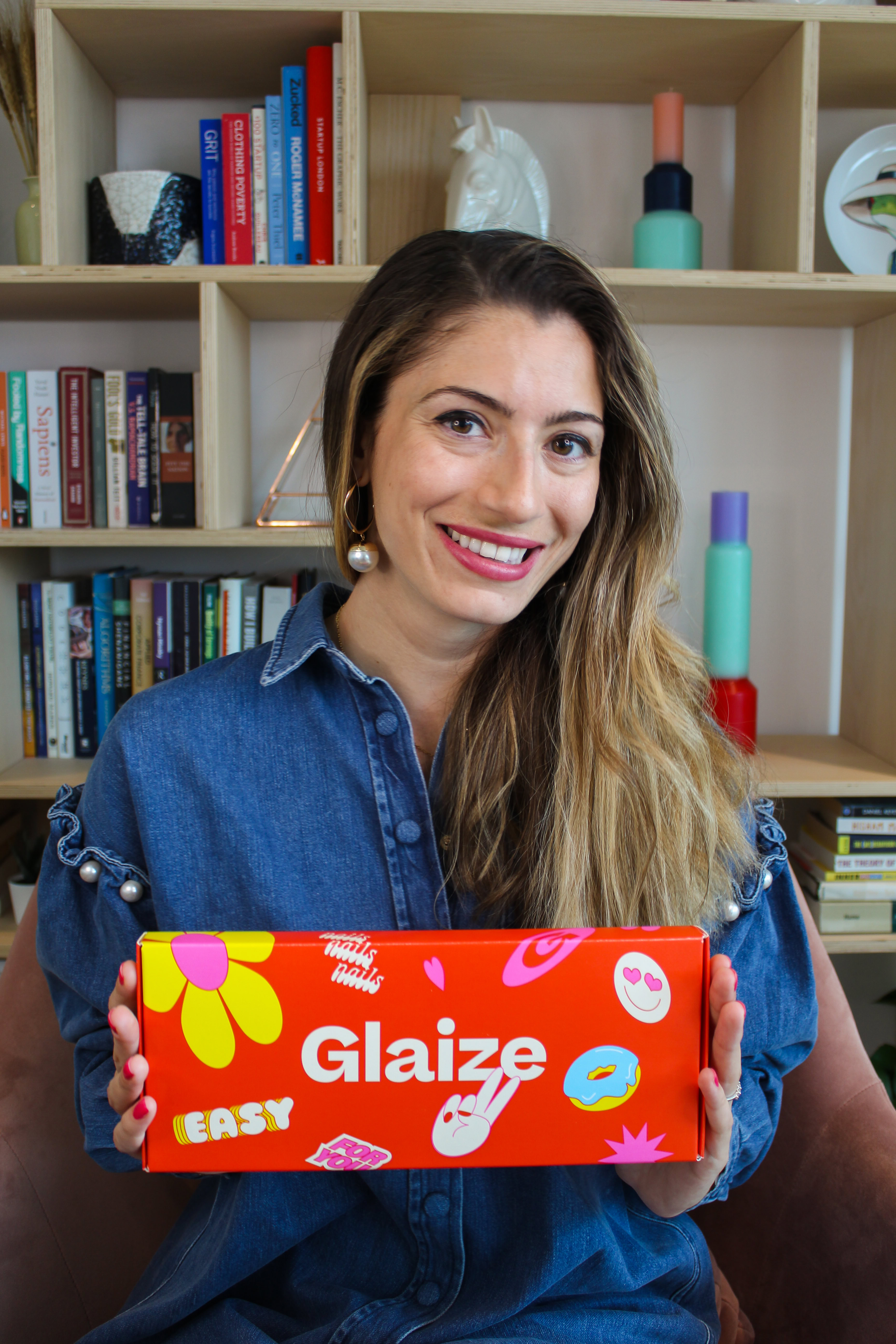Gina Farran (H.16), Innovation at Her Fingertips

After five years at the global investment bank Goldman Sachs, Gina Farran (H.16) ventured into entrepreneurship with a project worlds apart from financial products: gel nail stickers that give the illusion of a salon manicure. The founder spoke with HEC Stories from her London factory.
With her “cure to the manicure,” Gina Farran promises “the quality of a salon manicure without having to travel or wait for the polish to dry.” On the Glaize website (a play on the English word “glazed”), customers choose a color, design, or nail art patterns before sending a photo of their hands.
This is where a machine learning model automatically calculates the nail size down to the curve and produces made-to-measure stickers. This technology is still being refined and patented. Once the kit is received at home, it’s as simple as washing your nails and sticking on the stickers, trimming any excess. “And you don’t need acetone to remove polish,” Gina boasts.

Born in Beirut, the entrepreneur spent her childhood and pursued her studies in Lebanon before moving to Dubai at 20 and then being accepted into a master’s program at HEC. When she joined Goldman Sachs after graduation, she had a corporate career in mind. “I needed a sponsored visa, and I didn’t want to return to my country.” During her years in investment banking in London, this coquette woman didn’t have time to visit beauty parlors… and faced practical cosmetic issues. “I would work really late. And if you use nail polish just before going to bed, you wake up with it smudged everywhere.”
One day in 2020, she woke up “tired of the world of finance.” “I was working a lot but couldn’t see myself becoming a managing director. It didn’t inspire me.” Following this realization, the product development of Glaize lasted three years. Despite raw material shortages and supply chain issues caused by the pandemic and Brexit, the entrepreneur developed a gel formulation requiring over 1,000 iterations and built the entire manufacturing process in-house. The stickers were officially launched last year without the need for massive investment in communication.

A Shiny Appearance on Dragon’s Den
In the UK, the BBC One show Dragon’s Den is equivalent to France’s Qui veut être mon associé? or the US’s Shark Tank. The concept? An entrepreneur pitches their business to investor-judges, seeking a financial stake in exchange for a percentage on business sales. When the production team contacted Gina through customer service, she initially thought it was a scam. “This lady pretending to be from the BBC, emailed me, telling me to apply. I ignored her first and second messages. After the third, I decided to check if it was a real proposal.” She eventually decided to apply, which did not come easy. “You have to fill out a lot of forms, having almost a daily call with the researcher, because they do a lot of due diligence on the business to make sure that it’s a good fit that all the data provided is accurate.” The team finally went to Manchester last February for over two hours of filming. A segment “cut down to about fifteen minutes” in the final edit.
“Some questions were tough, but everyone was relatively nice,” Gina recalls. One judge, in particular, businesswoman Sara Davies, was especially enthusiastic about trying the stickers. “If your product is as good as you describe, you will disrupt the industry!” exclaimed the British investor. These words prompted her male colleagues to bid “out of FOMO”. Gina received four offers from a panel of five judges, ultimately accepting a joint investment from Sara Davies and Deborah Meaden.

“On the night the episode aired, we got overwhelmed with orders,” the entrepreneur recalls. “I expected it to last a day or two. But they shared the pitch on their social media, and the flow of orders kept going.” The pitch video reached 2.7 million views on TikTok, and over 200,000 visitors landed on the site after the show.
As a former student of the Master in Management specializing in sustainable development, Gina Farran says she aims to move toward a more responsible composition. The current formulation is 30% plant-based. “My vision is to try to make the product as sustainable as possible and to move forward by gradually replacing plastic components.”
Published by Estel Plagué

